Harry Marder
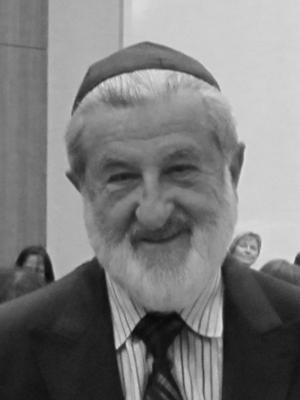
Born: Złoczów, Poland (now Zolochiv, Ukraine), 1928
Wartime experience: Ghetto, hiding
Writing partner: Dorothy Rusoff
Harry (Hershel) Marder was born in Złoczów, Poland (now Zolochiv, Ukraine), in 1928. He grew up with an older sister and three older brothers. In 1939, the town came under Soviet rule; in 1941, Germany invaded the Soviet-occupied areas of Poland.
Harry and his family avoided the Nazis’ early roundups of the Jewish population by hiding in a bunker they had constructed. In December 1942, a closed ghetto was established in Złoczów. Harry’s brother was in an army labour camp and managed to bring Harry there for a few weeks. Harry escaped with help from his brother’s contact and joined his mother in hiding in a barn on the property of a gentile farmer, who hid them at great risk. His sister later joined them. They remained hidden in the barn for about fifteen months, until the area was liberated by the Soviets in the summer of 1944. Of their large family, only Harry, his sister and his mother survived the war. After the war, they moved to Budapest, Hungary, and then spent three years in Vienna, Austria. They immigrated to Canada in 1949 and settled in Toronto, where Harry worked as an electrician and eventually owned a business called Nortown Electrical. In 1957, Harry married Shirley, and together they raised a family.
Our Town
I was born in Złoczów, which was then part of Poland, on December 12, 1928, during Chanukah. Złoczów was a small town between Lemberg (now known as Lviv) and Tarnopol (Ternopil), with a substantial Jewish population and a very large shul, the Stone Synagogue, a beautiful building built by in 1724. There were other, smaller shuls under specific rabbis, like the Zidichov, named after the town where the rabbi had begun a congregation.
We were a family of five children. My sister, Charna (Cyla), was the oldest, followed by my three brothers, Meyer, Moyshe and Mechl, and then me, the youngest. Our mother, Chava, was born in a small village called Biały Kamień (Bilyi Kamin’), near Złoczów, and our father, Shlomo, in the town of Zaloźce (Zaliztsi). My parents had a leather wholesale and retail business in Złoczów. The address of the house they owned was number three Mlynarska; it was the second house from the main road. The street was named after the mill on our street (the Polish word for mill is mlyn).
The house had three apartments on the second level, with two apartments and a large bakery on the main floor. We lived in a second-floor apartment with two bedrooms and a large kitchen. The family that operated the bakery lived in a one-bedroom apartment on the main floor, and my father’s sister, my aunty Sarah, her husband, Shlomie, and their four children — one girl and three boys — lived in the other apartment downstairs.
My parents’ business was in a building next to our house, on the main road. People came to buy both wholesale and retail; shoe makers bought leather and other supplies to make handmade shoes. My mother was very busy in the store while my father travelled to Lemberg, Krakow and other towns to purchase leather. My mother’s parents, Chana and Ira Shapiro, lived with us. Bubbe Chana looked after the family, the household and the cooking duties, and my grandfather worked in the store part time. By the time the war started, my oldest brother, Meyer, a teenager at the time, was also helping my parents and getting acquainted with the leather business.
At night, my bubbe and grandfather slept in a bedroom behind the store, my sister or one of my brothers sharing with them. My parents slept in one room of our apartment with the rest of us all in the other bedroom. In the old country, we didn’t have the comforts we have now, but we managed.
I went to public school in the morning, since there weren’t full-time Jewish schools at that time, and in the afternoon or evening, depending on when I finished public school, I went to cheder, a Jewish school. I started school when I was five and continued until the war began. The public school was integrated, girls and boys together, Jews and non-Jews. Antisemitism was rampant, but I didn’t feel it much in school. My brothers and I did experience it on the street, though. There were a lot of Poles and Ukrainians in our area, and sometimes non-Jewish boys from these groups started fights with us, which we tried to avoid.
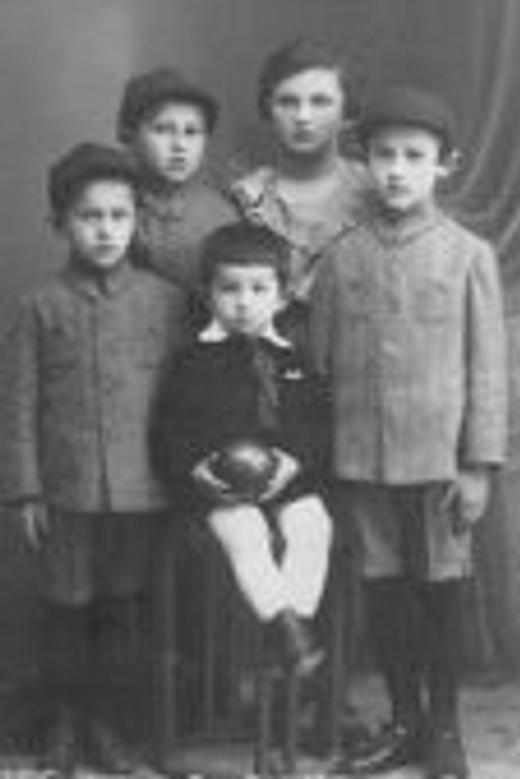
Harry Marder with his siblings before the war. In back (left to right): Mechl, Moshe, Cyla, and Meyer. Hershel (Harry), the youngest, is in front. Złoczów, Poland, early 1930s.
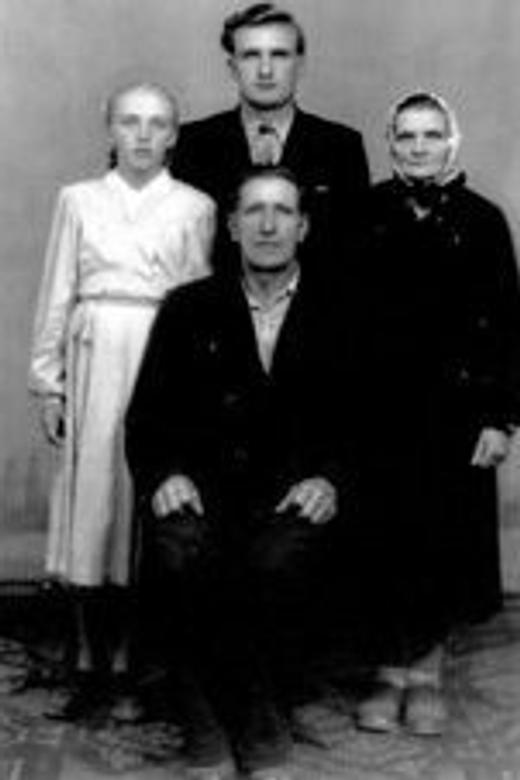
The Polish farmers who hid and saved the Marders and other Jews in their barn. Date and place unknown.
Occupations and Hiding
In 1939, exactly when school was supposed to start, the Germans invaded Poland. We had heard word that Jews were suffering under the Germans. The Soviets had made a pact with Hitler and began to occupy the eastern part of Poland, where we were, while the Germans occupied the west.
We didn’t start school that year, and in no time the Soviets came from the east, penetrating Poland’s border and moving toward the Germans in the west, which brought them right through Złoczów. There were a lot of Soviet armaments and military personnel, and they didn’t condone rich people, people who owned stores or businesses. During that period, from 1939 to 1941, a lot of people from our area of Poland, Eastern Poland, were sent to Siberia. As for my family, we bribed certain authorities not to send us there, which may have been a mistake. Soon, we were no longer allowed to do any business or even open the store. It was all under government control; whatever you needed was under government control.
As far as school was concerned, the Soviets changed things but provided a good education. Up until 1939, we’d learned the Polish and Ukrainian languages. When the Soviets took over, they taught us Russian and Yiddish, too; so the education was good, but it was intended to make us Communist. They played the game very nicely to attract us children, to encourage us to join the Young Pioneers, a Soviet youth organization, and learn the different steps to becoming Communists.
In order to stay in Złoczów, we had to become farmers, and we learned that to be listed as farmers we had to buy a cow. Of course, we didn’t know what to do with a cow. We rented a place for the cow and we stayed in our house. I used to take the cow to the pasture. This was all so we wouldn’t be sent to Siberia — to show that we were working, farming people, that we believed in labour, not business. This went on for two years during which we still had the freedom to pray and go to the synagogue, but in 1941 the Germans attacked the Soviets without a warning, beating them far, far back into the Soviet Union. The Ukrainian population wasn’t too helpful to us, actually assisting the Germans behind the lines, making it difficult for the Soviets to escape. But the struggle didn’t last long, and in no time the Germans were in Złoczów.
***
In 1942, we heard rumours that Jews were being rounded up for labour and death camps, and we feared we would be too, so we decided to build a bunker to hide in. As it turned out, the rumours were true.
The police took my father away to a place in a nearby forest near a village called Jelechowice (also, Yelichowice or Yelykhovychi), where three or four large excavations had been made. They shot thousands of Jews they had rounded up, including my father. This was on 27 Adar II, 5703, by the Jewish calendar — April 3, 1943.
In the afternoon of that same day, when the rest of the Jews were being rounded up in the ghetto, some were advised that if they told the police where other Jews were hiding, they themselves would be allowed to live. Previously, during the first roundup, we had taken neighbours into the basement bunker with us, and one of these neighbours, while he was being rounded up in the ghetto liquidation, believed the authorities and led them to our first bunker, hoping to save himself. There they found my brother Mechl, and they killed both my brother and the other man. That day, my father and my brother were killed.
***
Meyer made arrangements for my mother to go to a farm to hide in a barn where he knew a woman and her child were already hiding. The woman’s husband had worked in the leather factory with my father.
The farm had two cows and one pig. The farmer had made a hidden opening in the ceiling above the pig sty and gave us our food through this trap door. We stayed in the part of the attic that was blocked off behind a pile of hay. It had a high enough ceiling that we could stand up, but there wasn’t too much room to move around. We couldn’t do any exercise and went outside only two or three times the entire time we were there, and even then only at night. When I arrived, my mother saw I had lice in my hair and treated it with a special lice comb and paper she had with her. So my mother, Mrs. Klein and her daughter and I hid together in the barn’s loft until Mr. Klein arrived with my sister — and then it was the six of us. We knew the farmer also had a bunker underground in another barn.
We were there for about fifteen months. It was hot in the summer and cold in the winter. I have often wondered how it was that in all that time without enough food, without proper food, none of us got sick. As for going to the bathroom, there was a pot kept behind a curtain. The farmer collected and emptied the pot every day. When buying food, he couldn’t buy too much for fear of creating suspicion. He took a very big chance in hiding us. If he’d initially realized the risk he was taking, he probably wouldn’t have done it, but it was too late. Had he given us up at that point, his life would have been threatened, too.
My family weren’t the wealthiest people but we had some resources. In case we were separated, my mother and grandmother had made bands of cloth and sewed American gold coins of ten and twenty dollars into them. The ends of the cloth were tied to our bodies. Mine was tied around my thigh. At one point, I took the band off when I went to wash myself and realized later that it was missing. I couldn’t find it anywhere. Maybe someone took it — the farmer, the Kleins? I never did learn what happened to it. I told my mother, but there was nothing we could do about it; we didn’t want to accuse anyone and create friction.
There was no privacy. We slept in our clothes. We were more open with each other, more informal than we’d have been in normal circumstances. There were no fights. I’ve wondered how we got along with no fights for such a long time, but we knew we had to be patient. We lived with hope, which meant a lot.
In 1942, we heard rumours that Jews were being rounded up for labour and death camps, and we feared we would be too, so we decided to build a bunker to hide in. As it turned out, the rumours were true.
Finding Peace
I said my prayers every day with my siddur (prayer book) and tefillin (phylacteries), which I had with me. In the spring of 1944, the fighting that had been going on between the Soviets and the Germans came close to our area. The Soviets advanced, but the Germans pushed them back. Some people thought liberation had come, that they were free, and decided to leave their hiding places. They were caught and killed, which was a great shame after they’d been in hiding so long.
We decided to wait a while longer, and when the Soviets re-advanced and were close to us again we left the barn and made a break toward the front line. After being in the cramped hiding space for such a long time, our muscles felt paralyzed and we couldn’t walk very far, so we crawled toward the front line. Eventually we came to a barn and rested there for a few days. When we finally reached the Soviets, they offered us a ride to our hometown, for which we were very grateful, but along the way the Soviet driver took us to an isolated place. We believed he was an antisemite and was planning to harm or even kill us there. By chance, a Jewish Soviet army officer came by then and, seeing us, ordered the soldier to take us back to our hometown. Again, we’d been saved. The timely appearance of the Soviet officer saved us. The soldier returned us to Złoczów.
One person who’d been hiding in the farmer’s second underground bunker went back to his home to reclaim some belongings. The people there killed him, and we never saw him again. There was strong antisemitism present even after liberation, and this wouldn’t be the last we’d see of it.
In Złoczów we had our original house on Mlynarska and another one my parents had built with Mr. Rosen, my father’s business partner. This second house was a three-storey building containing two stores and the Rosens’ apartment. We found our house had been badly damaged by the bombs and was uninhabitable, so we moved into the Rosens’ house. We were hoping my two brothers were still alive and would return, but some people who’d been hiding in the forest told us the farmer who’d agreed to hide them had burned down the barn where he’d told Moyshe and Meyer and their friends they’d be safe. They had been killed by the very farmer who had agreed to save them. My mother went to the barn to try and retrieve my brothers’ bones to bury them, but the farmer’s neighbours told her to run away and leave them alone or they’d kill her too. This was all after liberation. When we reported it to the Soviet authorities, they told us they’d take care of it, that they’d send this farmer to the front to fight. We don’t know what happened to the farmer, if he was ever sent away or not.
After liberation, there were still pogroms in Poland. We realized that we couldn’t stay in the country when there was still so much antisemitism. We decided to go to Hungary and travelled to Krakow by train and in Soviet trucks, whose drivers would take us if we paid them. The last driver took us and some other people to the Polish-Hungarian border and dropped us off in a strange city, at night. We didn’t know where to go, but we heard there was another city where Jews were living. We travelled to Debrecen, where we were able to rest and recuperate a bit before moving on to Budapest. There we settled in an apartment with a Jewish family, staying for about a year, from 1945 to 1946.
The Soviets had liberated Hungary and were still in control there. Toward the end of 1946, we realized they might close the borders, so we hired another Soviet truck and went to Vienna. My sister had married Dovid Schmerz, a Polish Jew she’d met through a rabbi in Hungary, so I now had a brother-in-law, and we all stayed together in an apartment we rented from a widowed woman. We were there for three years, until 1949, when we immigrated to Canada and settled in Toronto.
***
Eventually, my mother and I bought a three-family house in Toronto at 391 Palmerston Boulevard, closer to College Street than my sister’s house, which was around Harbord Street. My mother and I lived on the main floor of the new house and rented out the other two apartments to help carry our mortgage. In 1954, I was able to buy a brand new car, my first car, a Pontiac Laurentian, for four thousand dollars. I continued to be successful running Nortown Electrical and employed more people, but I was still single.
At that time I was dating some girls, hoping to find the right one to marry. I continued to go to the synagogue Shomrai Shabbos, as it was the shul of Nathan Schwartz, my uncle’s uncle, who was the president there. The shul was led by Rabbi Gedalia Felder, a great Torah scholar and community leader with whom I became very close. He had been a rabbi in Brantford before he came to Toronto, where he assumed the roles of rabbi at Shomrai Shabbos shul and teacher at Associated Hebrew School. He knew an Orthodox girl from Brantford, and knowing this was the kind of girl I was looking for, suggested I meet her. Her name was Shirley (Chaja Sulamit) Zwetschkenbaum, and she and her parents had immigrated to Canada from Czechoslovakia before the war, when she was just a little girl. I met her at the rabbi’s house, where I’d been invited for dessert on a Friday evening. We started dating then, in the summer of 1957, and got married on November 26, that very year, at the Murray House, which I had worked on when I first came to Canada.
***
Over the years, I didn’t talk much about the war to my children. Maybe I told them a little. I didn’t hide anything and I certainly told them some of what happened, but it was not a topic of conversation generally. My son Ira was interested in my hometown and shtetl life and insisted that we go back to where I was born. So finally, once the Soviet Union collapsed, we decided to take a trip to Ukraine. Some people advised me not to go because there may be people there who still hated the Jews, but I ignored that. We took a plane to Frankfurt, Germany, and another to Lemberg, known now as Lviv, its Ukrainian name. We hired a taxi to take us from Lemberg to Złoczów, where we visited for two days. We went to see the children of the farmer who’d hidden my mother, my sister and me. We’d been in contact with them since the war. My sister used to write to them all the time, sending them money and packages of medicine, and I gave them money when we met with them now. They showed us three large excavations in the forest of Jelechowice where the bodies of the Jews from the ghetto had been buried in 1943, including my father and brother. It was the first time I was able to say Kaddish, the mourner’s prayer, for them.
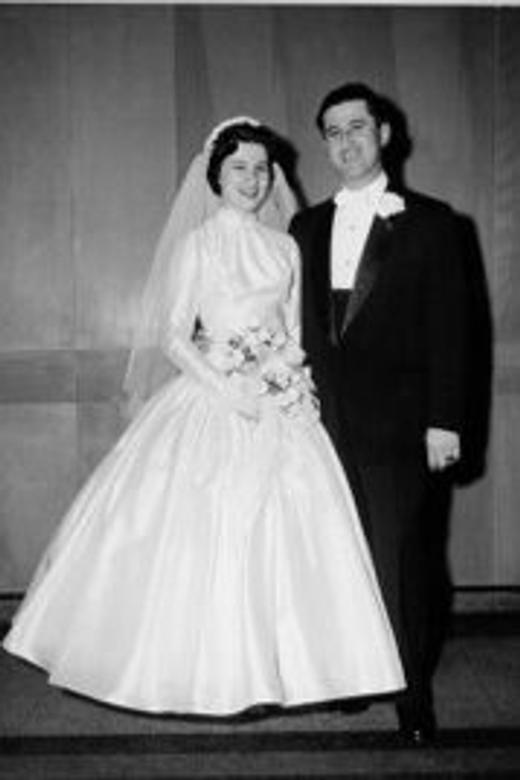
Harry and Shirley at their wedding in Murray House. Toronto, November 26, 1957.

Harry Marder in his Nortown truck, when he started his electrical business in Toronto in the 1950s.
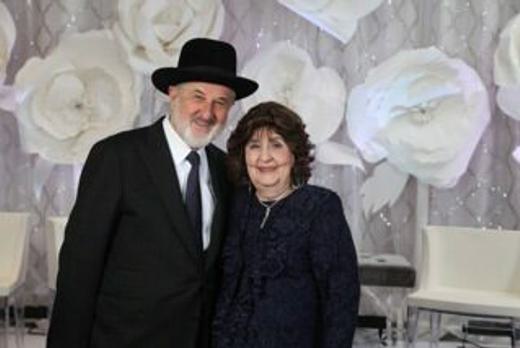
Harry and Shirley Marder, 2013.

